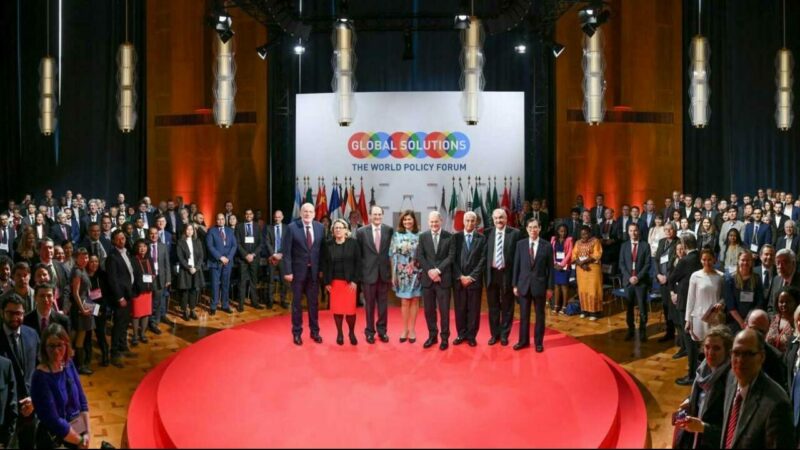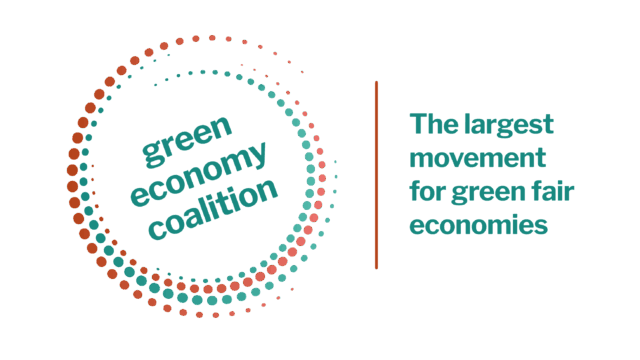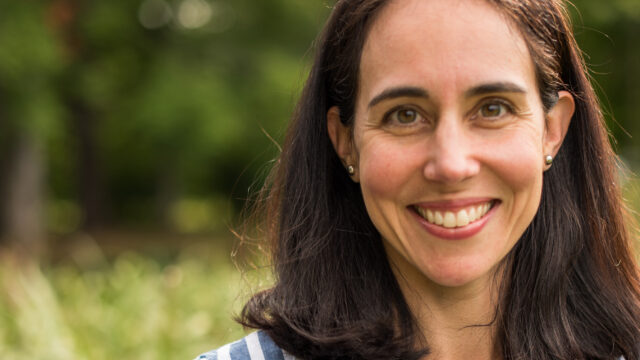Acting fast means acting local
Insights from the Global Solutions World Policy Forum

Our world is in trouble, and we face multiple crisis of climate, biodiversity loss, pollution, social inequality, and rising costs of living – all of which need fixing fast. According to Johan Rockstrom, Director of the Potsdam Institute for Climate Impact Research, it now costs approximately $300 billion per year to deal with existing crises, and these costs are increasing. The world needs stability, fairness, equity and long-term environmental responsibility.
In May, the Global Solutions World Policy Forum gathered thinkers from across the world to think through how far we have come to address these polycrises, and to propose what needs to happen now.
To make it, we need to invest in resilience, and translate planetary boundaries into budgets than enable fair distribution and embrace principles of planetary stewardship. We must enable both prosperity and equity while we transition. If we don’t, risks will continue to be amplified and lead to more migration, political polarisation, and social instability. But how do we do this?
“ The current multilateral system remains ill-equipped to reconcile the interests of competing power blocks or to coordinate between nations.”
The short answer is that we need bottom-up initiatives enthusiastically embraced and driven by normal people, coupled with decent policy frameworks that in turn are guided by democratic decision making.
This calls for a new form of economics, where externalities such as carbon and public good become part of pricing, taxation and subsidy, where charges are made for damaging practice, and where investments in green technology are de-risked, especially in the south. It requires us to measure and monitor the planet and conduct regular planetary boundary health checks.
But as things stand, the current multilateral system remains ill-equipped to reconcile the interests of competing power blocks or to coordinate between nations. Finance has become all powerful and is now too unstable.
What remains clear is that global collaboration is critical. We have good instruments that we can keep using such as the Paris Agreement, the Kunming Biodiversity Framework, the 2030 Agenda for Sustainable Development, and the many initiatives of G20 and G7. But we need more than this. Governments and institutions around the world are grappling with what it takes to create a new financial architecture, to bring about key reforms on Bretton Woods institutions, and to reshape the global economy around a green economy architecture.
Yet these efforts are all being shaped by leaders in northern richer nations, on their terms. Less wealthy nations barely have a say, and this is becoming a problem. Moreover, everywhere there is also a big disconnect between policy makers and people. If we want to achieve fair, just, sustainable resilience and sense of wellbeing for people and planet, we need to bridge these gaps.
At the Global Solutions Summit, GEC and Southern Transition moderated a conversation with policy leaders, practitioners and activists from the North and the South to explore their insights on making this transition happen. Panellists were drawn from the OECD, G20 presidency policy leaders from India and Brazil, academics from Europe and Uruguay, and civil society practitioners and activists from Zimbabwe and Brazil.

While the high-level vision for change is shared, there are multiple angles being taken to tackle this, ranging from a continued focus on a broader sense of growth, to the pursuit of bioeconomy and sustainable lifestyles. Across these agendas 5 critical areas resonated:
- Governance frameworks are expanding to consider more than growth and GDP. These seek to connect nature, society and economy, and are a response to public calls for new future-fit economies that are plural and focused on wellbeing. These call for a shift from egocentric individual agendas towards a shared sense of common good.
- Collaboration and coordination between institutions and between people is critical. Within society, there has been a rise in the number and effectiveness of collegiate networks and movements. Cross-ministry action is seen as a necessary condition to enable governments to deal with complex conditions and to enable systemic change at scale.
- Large scale financial investment, more than that available through public sector finance, is needed. There is plenty of money. According to the Tax Justice Network, $32 trillion sit in offshore secrecy jurisdictions. Europe’s needs alone amount to €26 trillion, an amount that was made by the top 1% in 2021 and 2022. This needs to be unlocked and mainstream finance needs to come together with development and climate finance. For now though, financial governance remains conservative, and transparency remains elusive.
- Local people need to be involved. Communities and micro enterprises experience the full consequences of climate change and inequality and are adapting quickly. They have unique insights and answers but remain excluded from the debate and are beleaguered. Their potential is huge and unrecognised. Their many small initiatives together have formidable potential to inform and influence national and global resilience.
- Public support is essential for change. There has been an increase in public consciousness regarding sustainability, but this has also been accompanied also by a decline in trust. Faced with daily realities of failing systems, poor leadership and little transparency, society in increasingly resisting top-down models. With rising a rising cost of living, there is a danger that transition initiatives fail to capture public trust. As parliaments legislate, society reacts in ways that often surprise legislators.
Our panellists noted that this is a marathon, not a sprint that requires more than just policy or just mass movement. It requires both to happen together, informed by one another and in support of one another.
“ The stability of our planet is critical to our wellbeing and survival. Without planetary stability, neither justice nor social equity can happen.”
Power remains grossly imbalanced and vested interest have considerable sway to maintain the financial and economic order that we now have. By these means, they cannot however maintain the planetary order that has sustained us thus far.
The challenges to change are huge. Legislatures block or water down any challenges to the interests of the fossil fuel industry, public attention is diverted towards culture-war issues, and a lack of transparency hides vast inequity in wealth and power. Poor leadership continues to rely on top-down models that reinforce current global order when perhaps the solution is plain to see.
People everywhere need to have their say, especially the vast majority who are never heard, let alone heeded. We at GEC would argue that this requires that we work hard to develop the means for each nation to develop their own new ecosocial contract, and for all nations to collaborate in making policies that lead to fair green deals that work for all.
The stability of our planet is critical to our wellbeing and survival. Without planetary stability, neither justice nor social equity can happen. We must recognise that the opposite is also true, for unless everyone has a stake in a fair future, the financial investment required to stabilise will not be politically possible.
- Stuart Worsley, GEC


